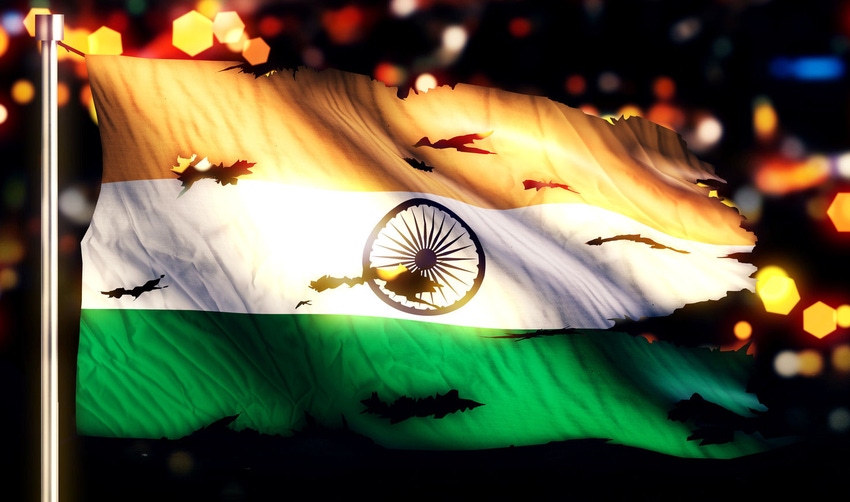The Indian Supreme Court has rejected a plea from Vodafone Idea and Bharti Airtel to defer disputed spectrum licence fee payments, making the collapse of Vodafone Idea a realistic outcome.
February 14, 2020

The Indian Supreme Court has rejected a plea from Vodafone Idea and Bharti Airtel to defer disputed spectrum licence fee payments, making the collapse of Vodafone Idea a realistic outcome.
While the dispute has been on-going for more than a decade, it has intensified considerably over the last few months. Vodafone Idea and Bharti Airtel are liable for roughly $7 billion each in payments, thanks to penalty fees and interests, and have been attempting to negotiate better terms.
The plea to the India Supreme Court, where the telcos asked for interest fees to be dropped and the sum to be payable over a ten-year period, has now been officially rejected. Vodafone Idea and Bharti Airtel now have until March 13 to make the payments to the Indian Government in full.
The question which now remains is whether the death of the Vodafone Idea business is anything more than a matter of time.
The dispute in question concerns license fees which the telcos are liable for. As part of the licence, the India Government is entitled to a slice of the profits, though what this percentage is and what it is a percentage of is the centre of the argument. As this disagreement has been on-going for more than a decade, the penalty and interest fees have been adding up to an eye-watering amount.
Despite pleas to ease the financial burden of these penalties, the Indian Government and regulator have remained stubbornly resolute. Now it appears in might be a case of ‘cutting off the nose to spite the face’.
The Indian Government has always looked quite self-serving when it comes to working alongside the telecommunications industry. It has seemingly looked at the market as a short-term money-tree, as opposed to a long-term stimulant to the greater economy. Spectrum auctions are another example of this, with the valuable, scarce and limited resource often going unsold at auctions as the telcos complain of the financial commitments.
Now the greediness of the Indian Government is seemingly coming back to haunt it as the threat of competition being dwindled to a duopoly, a very dangerous position to be in, becomes much more realistic.
At the time of writing, shares in Vodafone Idea were down 22%. Vodafone Group CEO Nick Reid has already suggested the business would not be prepared to invest anymore capital in India without assistance from the Government, with the latest ruling adding another nail in the coffin. The financial liabilities being placed on Vodafone Idea could very realistically cause the firm to shut up shop in the near future.
For the Indian telecommunications industry, this would be a disaster.
Telco | Market share |
Reliance Jio | 32% |
Vodafone Idea | 29% |
Bharti Airtel | 28% |
BSNL | 10% |
MBNL | 0.2% |
BSNL and MBNL are effectively being propped up by the Government currently, meaning the market has in-effect three mobile players. There of course used to be much more competition, but thanks to the Reliance Jio pricing disruption, Telenor, Tata and Reliance Communications exited the market, while Vodafone and Idea Cellular merged into a single entity in 2018. Competition is at a very weak point, and it now looks like it will become even more feeble.
If Vodafone was to cash in its chips, Idea Cellular will unlikely be able to revive its business. The merger was driven by survival after all, meaning the collapse of the third major MNO. A market duopoly is not healthy, especially when one of the competitors is already battered and bruised and facing the same monstrous fine as Vodafone Idea.
Bharti Airtel has suffered as much as any other telco since the arrival of Reliance Jio. As India is the domestic market of the telco, it is highly unlikely doors will close, but the Supreme Court decision will also hold Bharti Airtel to payments of roughly $7 billion. As the market heads towards an informal duopoly, the former-market leader could be weaker than ever.
On the other hand, as Reliance Jio only entered the market in 2016 its own spectrum fee bill is considerably less. It is still an uncomfortable amount, though the firm managed to sell off its tower assets to settle the amount. It might be a bit poorer for the saga, but it is in a considerably healthier position than any of its rivals.
The Indian authorities have done what can only be described an atrocious, amateur and absent-minded job of managing its telecommunications industry over the last few years. It seemingly favoured Reliance Jio to the long-term detriment of competition, was unable to price spectrum appropriately for decades, and in this example, is stubbornly demanding its dues. The authorities cannot be held to ransom by a diva-like demands of telcos, but the risk of a Vodafone Idea collapse is very high.
Vodafone Idea looks to be at breaking point, Bharti Airtel doesn’t have two rupees to rub together and Reliance Jio is laughing. The Indian Government is proving to be incompetent at managing a healthy and sustainable telco market.
About the Author(s)
You May Also Like








.png?width=300&auto=webp&quality=80&disable=upscale)


_1.jpg?width=300&auto=webp&quality=80&disable=upscale)


.png?width=800&auto=webp&quality=80&disable=upscale)